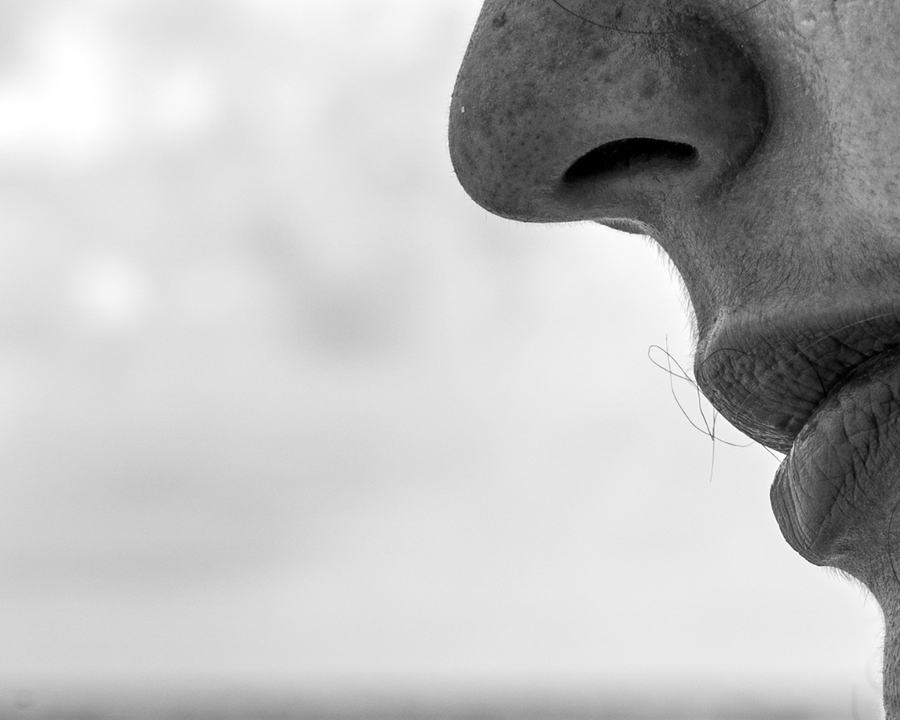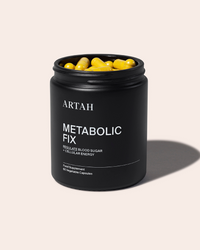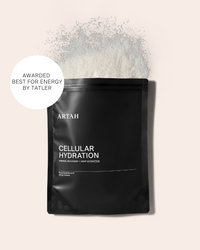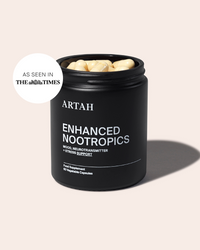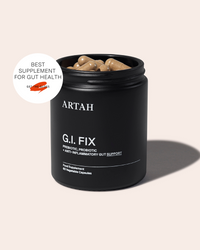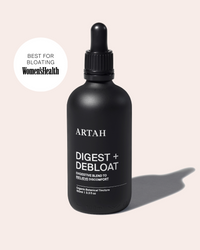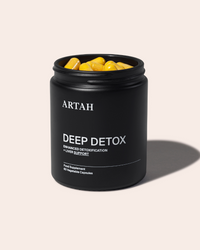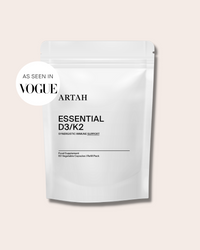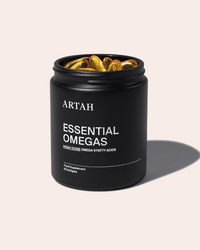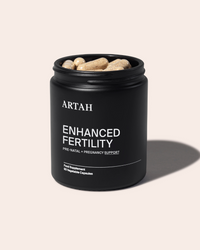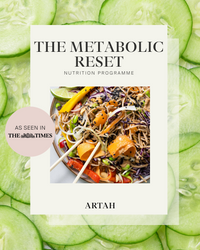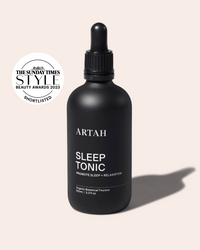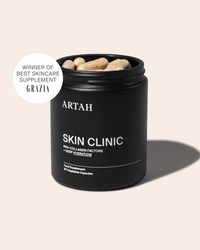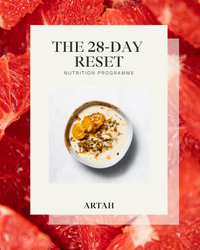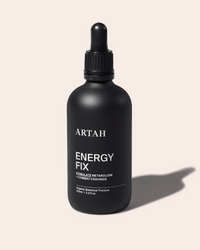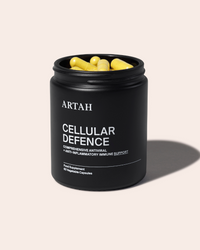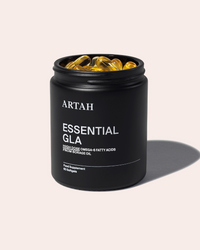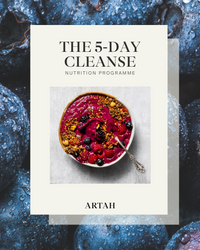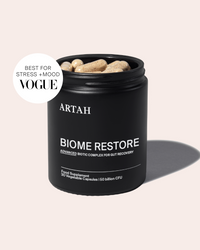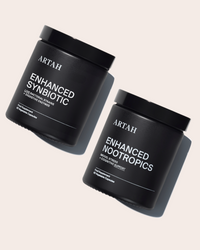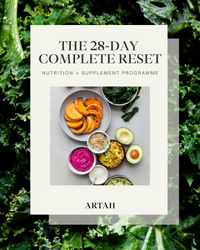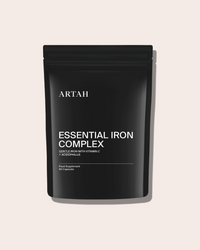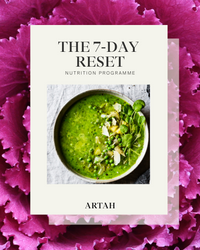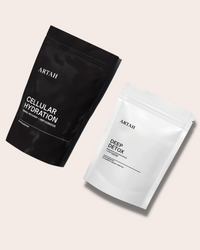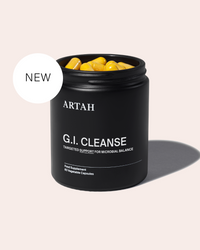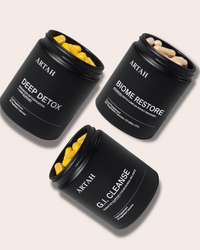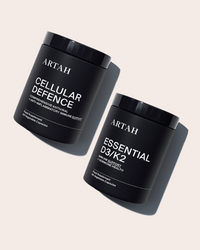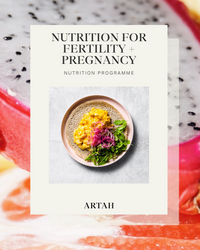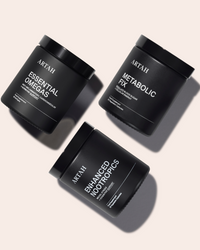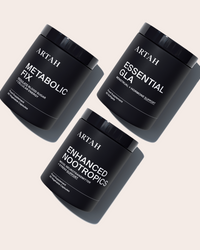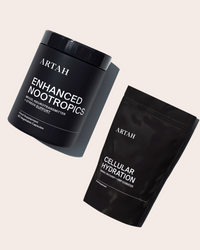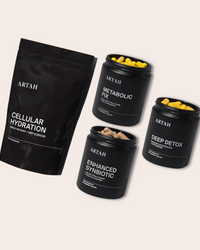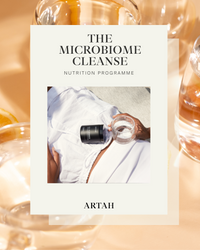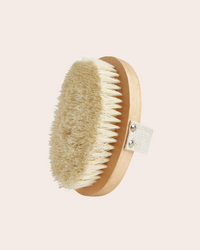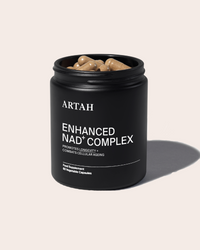4 Reasons Your Body Loves Dry January
As the new year unfolds, many of us seek out opportunities for positive change and a healthier lifestyle. One increasingly popular resolution is the widely embraced Dry January, where we say goodbye to cocktails, wine, and night caps, and abstain from alcohol for an entire month. If you haven’t tried avoiding alcohol for this long, we highly recommend it; beyond the obvious advantages to liver health, the allure of Dry January offers a spectrum of holistic benefits for our microbiome, mood, sleep, and blood sugar. And, because alcohol is often a saboteur in our efforts to be healthy, this simple resolution can set the tone for a vibrant and balanced year ahead, and kickstart your energy after a long holiday season. Here’s why your body will love Dry January.
It Helps Your Microbiome
Your gut microbiome, a diverse community of trillions of microorganisms residing in your digestive tract, play a pivotal role in maintaining both physical and mental health. Researchers agree that a diverse microbiome with lots of different types of bacteria tends to be a healthier microbiome. Alcohol stimulates bacterial overgrowth, which can reduce the ratio of beneficial bacteria, leading to imbalances that cause digestive issues, a weakened immune system and inflammation. In addition to this, the ethanol in alcohol can inhibit the absorption of vital nutrients, further decreasing your microbial count and the ratio of good bacteria in the gut. (1)
The gut relies on a critical defence mechanism – the intestinal barrier, which facilitates the passage of essential nutrients from the digestive tract into the bloodstream, while preventing the entry of harmful substances. Alcohol, however, induces cellular damage to the intestinal lining, creating openings that permit large and potentially harmful molecules to permeate into the bloodstream. (2)
Research indicates that refraining from alcohol, even for brief intervals, facilitates the restoration of beneficial bacteria levels and promotes the regeneration of the intestinal lining. (3) Should you choose to embark on a Dry January journey, consider the positive repercussions on your microbiome. This recalibration fosters a diverse and balanced community of microorganisms, positively influencing nutrient absorption, immune functioning and overall wellbeing.
It Can Elevate Your Mood
Imbalances in gut microbiota and increased intestinal permeability are believed to contribute to the low-grade inflammation observed in stress-related mental health disorders, such as anxiety and depression. (4) Alcohol, in addition to indirectly influencing mood through its impact on gut health, is known to have a direct effect on emotional wellbeing. (5)
Alcohol is a central nervous system depressant by inhibiting glutamine, a natural stimulant in the body, and as such, it may initially induce feelings of relaxation. But as we breakdown alcohol, the body overcompensates and tries to get glutamine levels back up. This is referred to as the glutamine rebound and is a big part of why our sleep can be so disrupted with alcohol. In addition, chronic consumption can lead to low mood and depressive symptoms, even in during the intoxication phase. (6) In the hangover and withdrawal phase, symptoms of anxiety dominate, which include signs, such as, a racing heart, paranoia and chronic worry. The link between the amount and regularity of alcohol intake and the development of temporary anxiety and depressive symptoms is evident, with an increase in consumption correlating with a higher likelihood and intensity of such symptoms. (7)
When we drink regularly, it’s easy to be fooled into thinking that mood and sleep issues are the norm, rather than a result of alcohol, which is why a dry period can be a great reminder of how good we can feel naturally. By allowing our brain chemistry to stabilize, this period can reduce symptoms of anxiety and depression, enhance mental clarity, and bolster emotional resilience – setting the stage for a more uplifting and focussed year ahead.
It Improves Your Sleep
While alcohol initially induces drowsiness, it disrupts sleep cycles, resulting in fragmented and less restorative sleep. (8) High alcohol doses specifically suppress and delay the onset of rapid eye movement (REM) sleep.(9) Though not traditionally deemed “deep”, REM sleep is vital for memory consolidation and emotional regulation. Research indicates that men with higher alcohol consumption face challenges in staying asleep and entering the deeper phases of sleep, such as, slow-wave sleep (SWS), which is integral for restorative processes.(10)
Dehydration is an inherent outcome of alcohol consumption and can also contribute to disrupted sleep patterns, as well as headache and fatigue.(10) And, because dehydration triggers our body’s stress response, it can also influence our cortisol levels, further perpetuating the cycle of poor sleep. Restoring and ensuring adequate hydration levels will be a natural consequence of your dry January efforts, contributing to a more conducive environment for restorative sleep.
It Can Help Blood Sugar
The liver, a central player in alcohol metabolism, temporarily interrupts glucose metabolism during alcohol processing, which can lead to rapid drops in blood sugar levels and hypoglycaemia. Moreover, chronic alcohol consumption has been associated with B-cell dysfunction, a crucial factor in insulin production, potentially increasing the risk of type 2 diabetes over time. (11)
Alcohol’s influence on blood sugar extends beyond direct effects; it also impacts dietary choices, which in turn influence blood sugar. Research indicates a strong link between frequent alcohol intake and consumption of high-fat, high sugar, ultra-processed foods (UPFs). (12)
For Extra Support
If you’re embarking on Dry January this year, here are our favourite supplements to support your system.
- For gut and mood, opt for Biome Restore, which has 50bn CFU of clinically proven probiotics alongside Lion’s Mane, a powerful nootropic for mood and focus.
- For blood sugar, opt for Metabolic Fix, our best-selling complex with Berberine, Chromium, Alpha-Lipoic acid and other phytonutrients proven to improve energy production and blood sugar.
- For sleep, opt for Sleep Tonic, which contains biodynamic herbs proven to improve sleep onset, sleep duration, and reduce anxiety.
- For hydration and mood, opt for Cellular Hydration, which contains essential electrolytes for hydration, mood and energy, alongside Maca, an adaptogen used to combat stress, improve energy, and support hormone health.
Final Thoughts
Opting for Dry January this year entails more than just a break from alcohol; it opens the door to a range of holistic benefits. From nurturing a flourishing microbiome to enhancing mood, sleep and blood sugar control, this challenge can set the stage for balance, health, and energy. Backed by evidence, Dry January serves as a compelling starting point if you’re looking for a simple but impactful way to optimise your health.
Disclaimer: This article is for educational purposes only and the implementation of the theories and practices discussed is at the sole discretion of the individual. All information given is not a substitute for medical advice, diagnosis, or treatment. If you have any concerns about your health, you should speak with your physician.
References:
- Bishehsari F, Magno E, Swanson G, Desai V, Voigt RM, Forsyth CB, Keshavarzian A. Alcohol and Gut-Derived Inflammation. Alcohol Res. 2017;38(2):163-171.
- Calleja-Conde J, Echeverry-Alzate V, Bühler KM, Durán-González P, Morales-García JÁ, Segovia-Rodríguez L, Rodríguez de Fonseca F, Giné E, López-Moreno JA. The Immune System through the Lens of Alcohol Intake and Gut Microbiota. Int J Mol Sci. 2021 Jul 13;22(14):7485.
- McHugh RK, Weiss RD. Alcohol Use Disorder and Depressive Disorders. Alcohol Res. 2019
- Persson LO, Sjöberg L, Svensson E. Mood effects of alcohol. Psychopharmacology (Berl). 1980;68(3):295-9.
- Viola Helaakoski, Jaakko Kaprio, Christer Hublin, Hanna M Ollila, Antti Latvala, Alcohol use and poor sleep quality: a longitudinal twin study across 36 years, SLEEP Advances, Volume 3, Issue 1, 2022
- Park SY, Oh MK, Lee BS, Kim HG, Lee WJ, Lee JH, Lim JT, Kim JY. The Effects of Alcohol on Quality of Sleep. Korean J Fam Med. 2015, 36(6):294-9
- Jang, H.B., Go, M.J., Park, S.I. et al. Chronic heavy alcohol consumption influences the association between genetic variants of GCK or INSR and the development of diabetes in men: A 12-year follow-up study. Sci Rep 9, 20029 (2019).
- Colrain IM, Nicholas CL, Baker FC. Alcohol and the sleeping brain. Handb Clin Neurol. 2014;125:415-31.
- Mesas, A.E., Girotto, E., Rodrigues, R. et al. Ultra-Processed Food Consumption is Associated with Alcoholic Beverage Drinking, Tobacco Smoking, and Illicit Drug Use in Adolescents: A Nationwide Population-Based Study. Int J Ment Health Addiction (2023)




